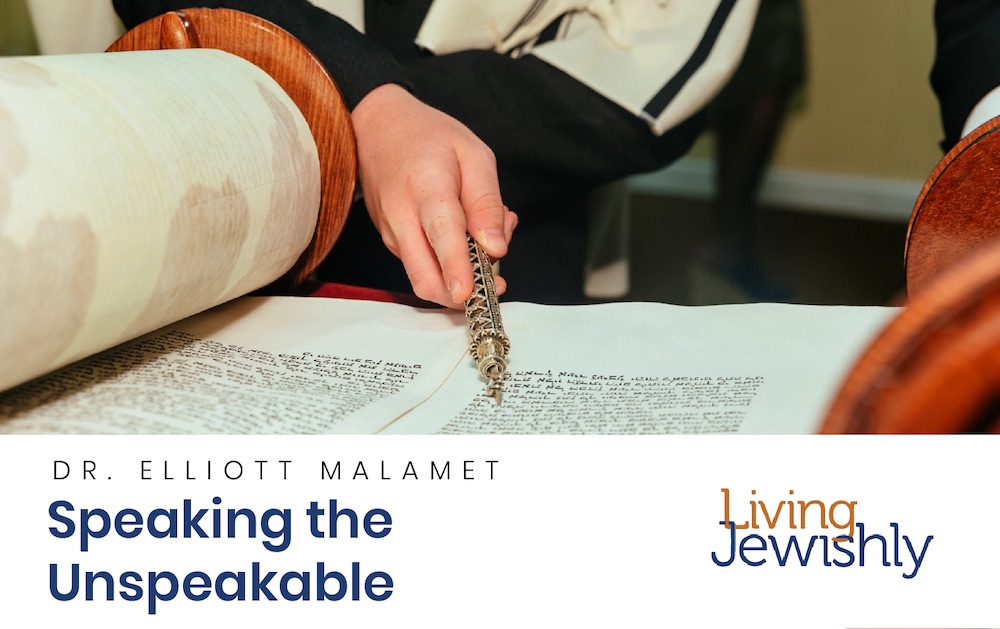A couple of years ago, I was invited to moderate a panel comprised of a number of Orthodox singles and one married woman, who talked about what it was like being single and trying to remain observant Jews. Halfway through the discussion I asked about how them how they had navigated Judaism’s sexual restrictions and whether they had spoken to rabbis about this and what they had been told. No one felt comfortable answering that question unless I turned off the tape that had recorded the session. [Check out our podcast about this incident called “Turn off the Tape.”] The metaphor of turning off the tape indicates the difficulty of airing certain subjects in the Jewish domain, especially among older or more traditional audiences.
It was not always so. When one reviews Talmudic literature, for instance, about sexuality and intimacy, there is a startling openness regarding the nature of desire, with unselfconscious references to explicit sexual positions. One example can suffice to demonstrate rabbinic candour about erotic pleasure.
The Talmud (Nedarim 20a-b) relates that Rabbi Yohanan ben Dahvai attributes all sorts of terrifying consequences to what he sees as improper sexual acts by the man: children are “born blind” because the husband gazes at his wife’s genital area, born speechless because he kisses her there, and born lame because he “turns the table”, likely a reference to anal intercourse.
But not only does the Talmud not bother to censor R. Yohanan’s predictions, it confidently rejects his premises. So despite his trepidation, it seems clear that the majority opinion was nonplussed regarding cunnilingus, i.e., oral stimulation of the clitoris (though such a reading was disputed in the Jewish mystical tradition). And the rabbis also conclude, albeit in highly patriarchal fashion, that “a man may do with his wife as he pleases,” using the graphic image of a piece of meat or fish which, if kosher, may be eaten any way one likes. Let’s pass over the sexist crudity of the symbolism for a moment, and simply take note of the lack of repression guiding the entire passage.
In codifying the ubiquitousness of desire, the halacha in many cases ends up being more open minded and progressive than many rabbis would like, almost as if such authorities ironically want to look away from the law because of their own discomfort with raw sexuality. Maimonides, for instance, writes that “in spite of the halacha, the pious take care to distance themselves from such behaviours.” One feels the distaste between the lines: sexual freedom may be allowed but, at least for some, it is not truly preferable.
What all this points to is the vigorous discourse embedded in Jewish tradition. The need for such conversations, in our time of stark alienation of many from Jewish life and living, have become more paramount than ever before. The recent Netflix series Unorthodox portrays dysfunctional and primitive attitudes to sexuality that would have been startling and totally at odds with much of how Jewish tradition views sex.
I understand that all of this is beside the point for those who would see it as ludicrous presumption on the part of any religious tradition that sees fit to regulate what can be seen as a completely private domain. For such people, understandably, any halacha which would restrict romantic and sexual possibilities seems immoral and outdated, and symbolizes a religion that is losing relevance. For others, though, the surrender to God’s will even in an area as intimate as one’s sexual life is actually the essence of the religious impulse, where you must humbly accept the limits of individualism.
Yet even Orthodox Jews, increasingly feel a solemn and irreplaceable commitment to their own inner voice and truth, leading to a potential clash between what one might call a personal sense of authenticity on the one hand, and the realm of halachic demands on the other. That conflict can be characterized as the tension between a sensibility that is religiously obedient, and the growing feeling for many people that to follow the demands of the Torah would be, in certain crucial moments, to betray their own deepest sensibilities – about themselves, the world, and in fact about God. There are a set of questions that attend to this: How does one accept an external divine or religious command in an age of autonomy? Is the authentic self a serious moral value or is it just an excuse for self-centred narcissism? Can one be “authentic” and “halachic“?
We will not be able to address such thorny problems without an attitude of open discussion, and talking about sex is one aspect of this. We need to turn the tape back on and discuss the erotic in Jewish settings without giggling or embarrassment. As Peggy Orenstein, author of Girls and Sex, asserts: “For some reason, we separate discussion of sex into this ‘other’ space, when we should really be including it in the lessons we teach our children – girls and boys – about being a mensch, a good friend, not bullying, caring for others.” In that respect, we should all be Dutch. Sex education in Holland starts during kindergarten, and Dutch children learn not just about technical information, but also learning to respect your partner and making good sexual choices. No topics are off limits, from masturbation to types of birth control to gender fluidity.
In his book, Difficult Conversations: How to Discuss What Matters Most, the Harvard law lecturer Douglas Stone offers a memorable paradigm for leaning to deal with uncomfortable conversations: “Imagine that while scuba diving, you suddenly see a shark glide into view. Your heart starts to pound and your anxiety skyrockets. You’re terrified, which is a perfectly rational and understandable feeling. Now imagine that your marine biology training enables you to identify it as a Reef Shark, which you know doesn’t prey on anything as large as you. Your anxiety disappears. Instead you feel excited and curious to observe the shark’s behavior.”
Often, the more we know about a topic, the less scary it gets. What was unspeakable now becomes ordinary. At one time, Judaism did not feel the need to avoid confrontation with the most graphic of subjects, but could meet those challenges and provide new and inspiring ways of thinking. That time has come again.


0 Comments